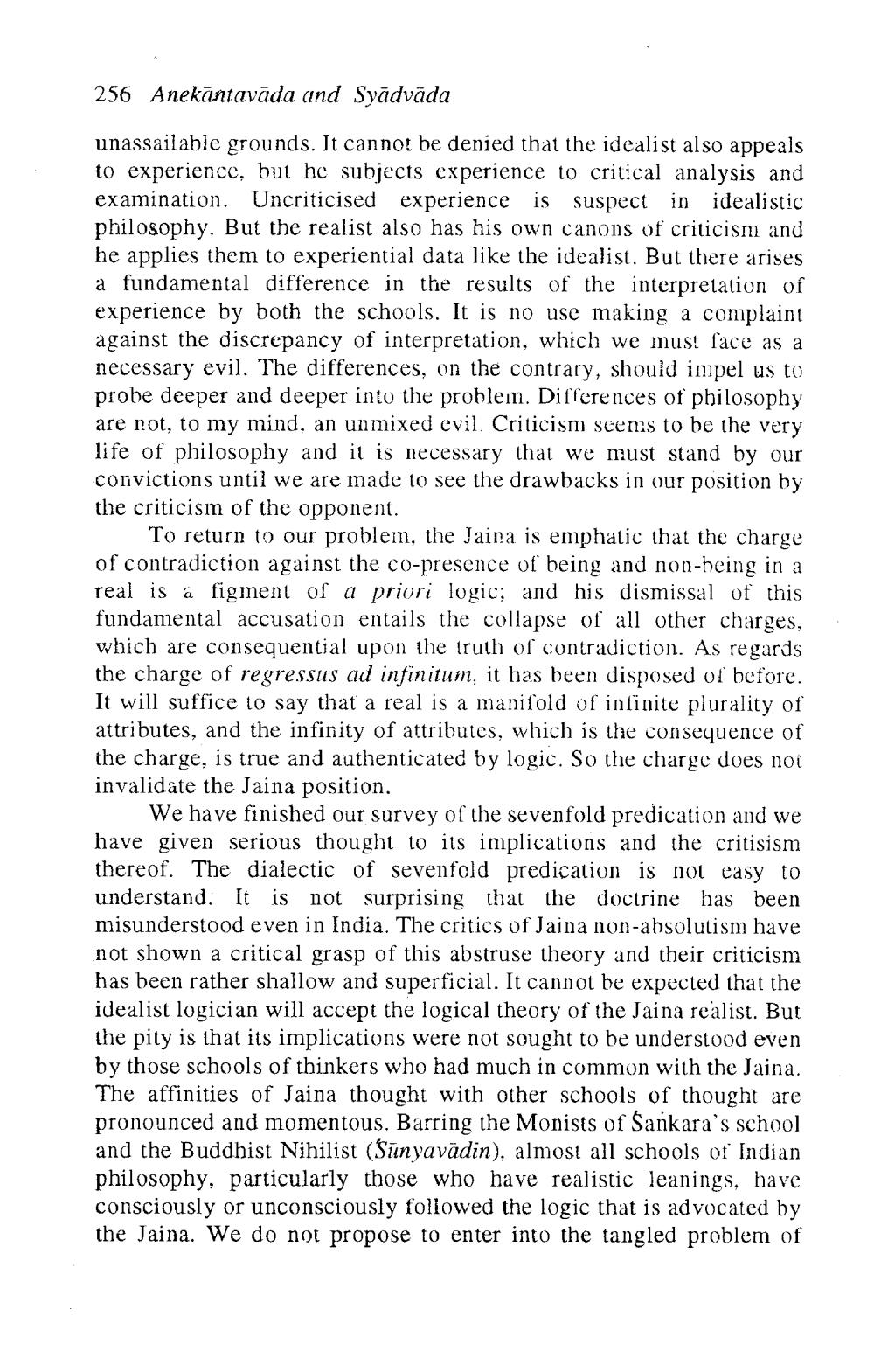________________
256 Anekāntavāda and Syādvāda
unassailable grounds. It cannot be denied that the idealist also appeals to experience, but he subjects experience to critical analysis and examination. Uncriticised experience is suspect in idealistic philosophy. But the realist also has his own canons of criticism and he applies them to experiential data like the idealist. But there arises a fundamental difference in the results of the interpretation of experience by both the schools. It is no use making a complaint against the discrepancy of interpretation, which we must face as a necessary evil. The differences, on the contrary, should impel us to probe deeper and deeper into the problem. Differences of philosophy are not, to my mind, an unmixed evil. Criticism seems to be the very life of philosophy and it is necessary that we must stand by our convictions until we are made to see the drawbacks in our position by the criticism of the opponent.
To return to our problem, the Jaina is emphatic that the charge of contradiction against the co-presence of being and non-being in a real is á figment of a priori logic; and his dismissal of this fundamental accusation entails the collapse of all other charges, which are consequential upon the truth of contradiction. As regards the charge of regressus ad infinitum, it has been disposed of before. It will suffice to say that a real is a manifold of infinite plurality of attributes, and the infinity of attributes, which is the consequence of the charge, is true and authenticated by logic. So the charge does noi invalidate the Jaina position.
We have finished our survey of the sevenfold predication and we have given serious thought to its implications and the critisism thereof. The dialectic of sevenfold predication is not easy to understand. It is not surprising that the doctrine has been misunderstood even in India. The critics of Jaina non-absolutism have not shown a critical grasp of this abstruse theory and their criticism has been rather shallow and superficial. It cannot be expected that the idealist logician will accept the logical theory of the Jaina realist. But the pity is that its implications were not sought to be understood even by those schools of thinkers who had much in common with the Jaina.
The affinities of Jaina thought with other schools of thought are pronounced and momentous. Barring the Monists of Sankara's school and the Buddhist Nihilist (Sünyavādin), almost all schools of Indian philosophy, particularly those who have realistic leanings, have consciously or unconsciously followed the logic that is advocated by the Jaina. We do not propose to enter into the tangled problem of




